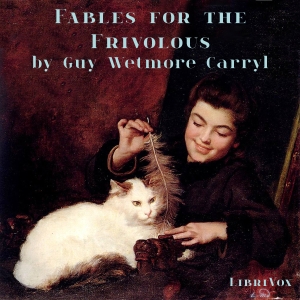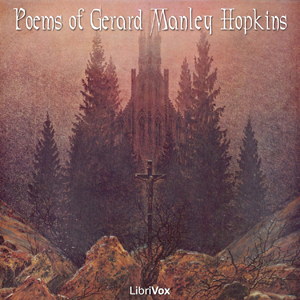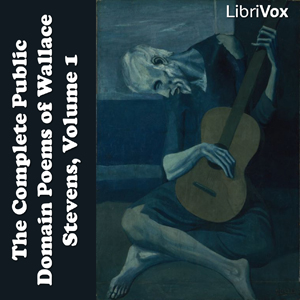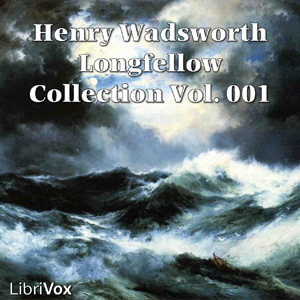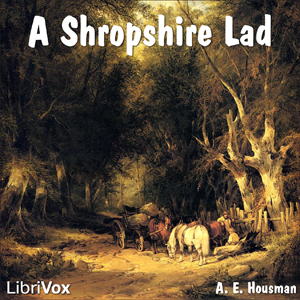- Author's Preface
- For a Picture of St. Dorothea
- Heaven—Haven
- The Habit of Perfection
- The Wreck of the Deutschland
- Penmaen Pool
- The Silver Jubilee
- God’s Grandeur
- The Starlight Night
- Spring
- The Lantern out of Doors
- The Sea and the Skylark
- The Windhover
- Pied Beauty
- Hurrahing in Harvest
- The Caged Skylark
- In the Valley of the Elwy
- The Loss of the Eurydice
- The May Magnificat
- Binsey Poplars
- Duns Scotus’s Oxford
- Henry Purcell
- Peace
- The Bugler’s First Communion
- Morning Midday and Evening Sacrifice
- Andromeda
- The Candle Indoors
- The Handsome Heart
- At the Wedding March
- Felix Randal
- Brothers
- Spring and Fall
- Spelt from Sibyl’s Leaves
- Inversnaid
- 'As kingfishers catch fire, dragonflies draw flame'
- Ribblesdale
- The Leaden Echo and the Golden Echo
- The Blessed Virgin compared to the Air we Breathe
- To what serves Mortal Beauty?
- [The Soldier]
- [Carrion Comfort]
- 'No worst, there is none'
- Tom’s Garland
- Harry Ploughman
- 'To seem the stranger lies my lot, my life'
- 'I wake and feel the fell of dark, not day'
- 'Patience, hard thing! the hard thing but to pray'
- 'My own heart let me have more have pity on'
- That Nature is a Heraclitean Fire and of the comfort of the Resurrection
- St. Alphonsus Rodriguez
- 'Thou art indeed just, Lord, if I contend'
- To R. B.
- Summa
- 'What being in rank-old nature should earlier have that breath been'
- On the Portrait of Two Beautiful Young People
- 'The sea took pity: it interposed with doom'
- [Ash-boughs]
- 'Hope holds to Christ the mind’s own mirror out'
- St. Winefred’s Well
- 'What shall I do for the land that bred me'
- 'The times are nightfall, look, their light grows less'
- Cheery Beggar
- 'Denis, whose motionable, alert, most vaulting wit'
- 'The furl of fresh-leaved dogrose'
- The Woodlark
- Moonrise
- 'Repeat that, repeat'
- On a piece of music
- 'The child is father to the man'
- 'The shepherd’s brow, fronting forked lightning'
- To his Watch
- 'Strike, churl; hurl, cheerless wind'
- Epithalamion
- 'Thee, God, I come from, to thee go'
- 'To him who ever thought with love of me'
Gerard Manley Hopkins (1844–1889) was one of the most innovative of English Victorian poets, best known now for his vivid and original imagery of the natural world in verses such as “The Windhover” and “Pied Beauty”.
Hopkins was a master of miniaturisation and condensation. His poetry is characterised by freshness, concentrated originality and often unconventional syntax in which words may have multiple shades of meaning. One of his most important innovations was what he called “sprung rhythm”, a style intended to be read aloud in which — like natural speech — the stressed syllables ‘spring’ between a variable number of unstressed syllables, and in which the poetic lines are defined not by number of syllables but by number of stresses.
At the age of 24 Hopkins converted to Catholicism and began training as a Jesuit priest. For seven years he wrote no poetry at all, believing that he was not called by God to do so. This period ended with a concentrated explosion of originality with “The Wreck of the Deutschland”, his greatest and longest poem (number 4 in this collection) which is dedicated to the memory of five nuns who lost their lives while attempting the sea passage from Germany to England in 1875. Sometimes considered ‘difficult’ by readers who approach it in printed form, the poem’s outlines become clearer when read aloud. It is divided into two sections, an introductory part in which the poet discourses with wonder on the sudden return of his poetic muse after so many fallow years; and a second part in which he describes with dramatic pace the fate of the ship as it hurtles in the storm and snow to its doom on the Kentish sands. At its heart the poem celebrates, in extraordinarily vivid and imaginative terms, the spiritual vision of a nun whose entire attention is absorbed by Christ even as all around her is chaos and terror.
Most of Hopkins’ poetry was unpublished and completely unknown until nearly 30 years after his death when in 1918 Robert Bridges, his old friend and by then Poet Laureate, brought out this book. Hopkins’ originality was soon recognised, and his verse has had a marked influence on many later poets including TS Eliot, Dylan Thomas, WH Auden, Stephen Spender and Cecil Day-Lewis. (Michael Maggs)
Hopkins was a master of miniaturisation and condensation. His poetry is characterised by freshness, concentrated originality and often unconventional syntax in which words may have multiple shades of meaning. One of his most important innovations was what he called “sprung rhythm”, a style intended to be read aloud in which — like natural speech — the stressed syllables ‘spring’ between a variable number of unstressed syllables, and in which the poetic lines are defined not by number of syllables but by number of stresses.
At the age of 24 Hopkins converted to Catholicism and began training as a Jesuit priest. For seven years he wrote no poetry at all, believing that he was not called by God to do so. This period ended with a concentrated explosion of originality with “The Wreck of the Deutschland”, his greatest and longest poem (number 4 in this collection) which is dedicated to the memory of five nuns who lost their lives while attempting the sea passage from Germany to England in 1875. Sometimes considered ‘difficult’ by readers who approach it in printed form, the poem’s outlines become clearer when read aloud. It is divided into two sections, an introductory part in which the poet discourses with wonder on the sudden return of his poetic muse after so many fallow years; and a second part in which he describes with dramatic pace the fate of the ship as it hurtles in the storm and snow to its doom on the Kentish sands. At its heart the poem celebrates, in extraordinarily vivid and imaginative terms, the spiritual vision of a nun whose entire attention is absorbed by Christ even as all around her is chaos and terror.
Most of Hopkins’ poetry was unpublished and completely unknown until nearly 30 years after his death when in 1918 Robert Bridges, his old friend and by then Poet Laureate, brought out this book. Hopkins’ originality was soon recognised, and his verse has had a marked influence on many later poets including TS Eliot, Dylan Thomas, WH Auden, Stephen Spender and Cecil Day-Lewis. (Michael Maggs)
There are no reviews for this eBook.
There are no comments for this eBook.
You must log in to post a comment.
Log in


